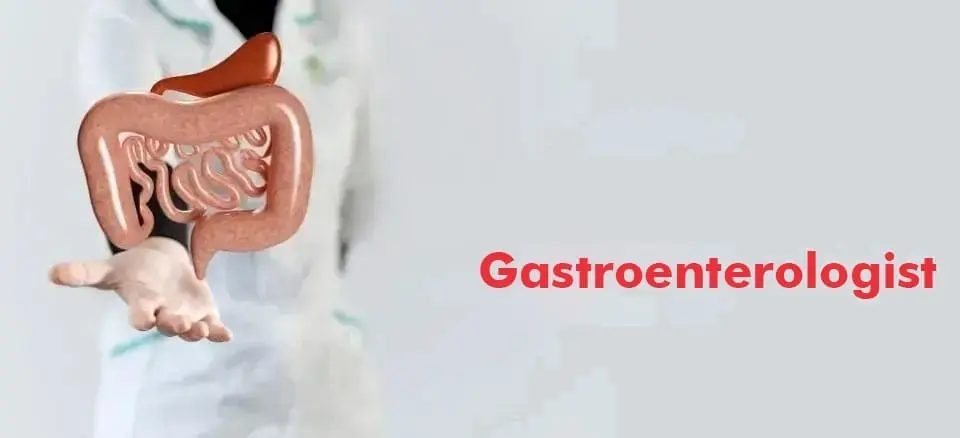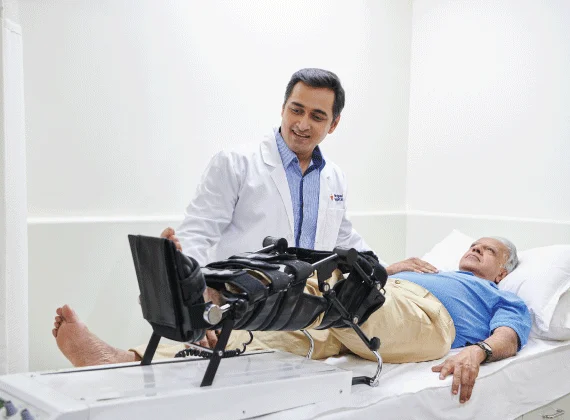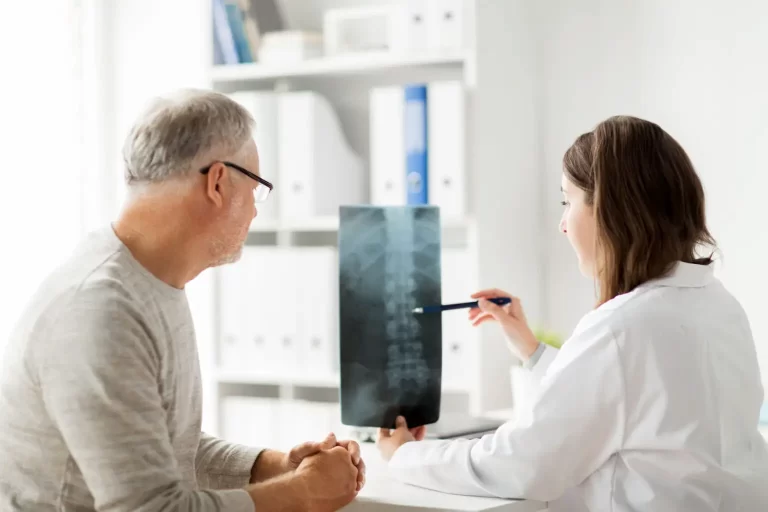Gastroenterologist
What is a Gastroenterologist?
An expert in gastrointestinal disorders is called a gastroenterologist. All of the digestive system’s organs, including the GI tract (esophagus, stomach, and intestines) and biliary organs (liver, bile ducts, pancreas, and gallbladder), are treated by gastroenterologists.
A gastroenterologist is a medical professional who treats digestive system diseases. General physicians train to become gastroenterologists.
Following medical school, they treat a variety of ailments for three years as medical residents. After that, students undergo an additional three years of education to become gastroenterologists. They then receive a special certification.
They are recognized as authorities in gastrointestinal disorders and illnesses by this credential. Additionally, it gives them the authority to interpret the data and conduct tests and operations that regular physicians are not qualified to accomplish.
Gastroenterologists, sometimes known as “GI doctors,” are specialists in treating disorders and illnesses of the digestive system and have a thorough understanding of how it functions.
They are not limited to treating issues since they are professionals. They may also teach kids and adults alike what they need to do to maintain the health of their systems.
This information will assist you in understanding the type of training GI doctors get, their duties, potential referral sources, and the type of treatment you may anticipate.
What is a Pediatric Gastroenterologist?
First and foremost, a physician with additional training in gastrointestinal is a pediatric gastroenterologist. During their three years of residency, pediatricians treat a wide range of diseases in infants, kids, and teenagers while practicing general pediatric medicine.
After that, pediatric gastroenterologists must complete three additional years of coursework to get certified. They focus on nutrition while studying the liver and gastrointestinal disorders that are most important to developing youngsters.
They learn how to do examinations and minor procedures within children’s tiny bodies, as well as how to understand the indications and symptoms of youngsters.
Which internal part is the focus of a gastroenterologist’s attention?
Your stomach and intestines are referred to by the term “gastroenterologist.” (“Entero” refers to the intestines, “gastro” to the stomach, and “biologist” to a specialist).
These are the organs that are most frequently affected by gastrointestinal disorders, or illnesses that affect your digestive system. However, the mouth and esophagus are also parts of the digestive system, via which food is swallowed.
It also comprises the biliary system’s organs, which provide your intestines with digestion enzymes and bile. These consist of your pancreas, liver, bile ducts, and gallbladder. All of these organs are treated by gastroenterologists.
Why would you go to a gastroenterologist?
It is possible that your regular physician has not been able to properly identify or treat problems you are experiencing relating to your digestive system.
Or perhaps you’re already aware that you have a significant gastrointestinal ailment and that you need professional medical attention. Seeing a specialist who has received further training in treating the kind of ailment you are suffering from has several advantages.
More gastrointestinal studies, exams, and operations are carried out by gastroenterologists than by other medical professionals. They thus have a higher propensity to diagnose conditions correctly, recognize them early, and treat them with little difficulty.
What conditions do gastroenterologists diagnose and treat?
Among the common ailments gastroenterologists treat are:
disorders of the digestive system (affecting the stomach and intestines), like:
- Irritable bowel syndrome (IBS).
- Inflammatory bowel disease (IBD).
- Celiac disease.
- Small intestinal bacterial overgrowth (SIBO).
- Food allergies and intolerances.
- Stomach ulcers.
- Diverticulitis.
- Appendicitis.
- Colorectal polyps.
- Hemorrhoids.
Esophageal disorders, such as:
- Swallowing difficulties.
- Gastroesophageal reflux disease (GERD).
- Esophagitis.
- Hiatal hernias.
Liver diseases, such as:
- Viral hepatitis.
- Toxic hepatitis.
- Fatty liver disease.
- Cirrhosis.
Pancreatic, biliary, and gallbladder diseases, such as:
- Gallstones.
- Cholecystitis.
- Pancreatitis.
What symptoms should I tell my gastroenterologist about?
A gastroenterologist may see you if you have any of the following common gastrointestinal symptoms:
- Abdominal pain.
- Bloated stomach.
- Indigestion.
- Gas and gas pain.
- Nausea and vomiting.
- Rectal bleeding.
- Diarrhea.
- Constipation or difficulty pooping.
- Unexplained weight loss or weight gain.
- Heartburn.
- Jaundice.
What does a gastroenterologist do?
First, you could be given a physical examination by a gastroenterologist. They could stick a finger into your rectum or feel and hear your abdominal organs from the outside.
Additional testing, such as blood, stool, or imaging tests like GI X-ray screenings that show pictures of your organs from the outside, could be ordered.
Endoscopic treatments are performed by specialist experienced gastroenterologists when they require more information than what these tests can offer.
These examinations use an endoscope, which is a small video camera attached to a long, thin, flexible tube that is inserted into your body to examine the inside.
Endoscopic procedures include:
Upper endoscopy or EGD: an assessment of your upper gastrointestinal system, which includes the duodenum and runs from your neck to your stomach and upper small intestine.
Enteroscopy: an analysis of your intestines.
Colonoscopy: an evaluation of your large intestine or lower GI tract.
Endoscopic ultrasound: An ultrasound wand linked to the endoscope during an upper or lower endoscopy aids in seeing your biliary system.
ERCP: An upper endoscopy known as endoscopic retrograde cholangiopancreatography is used to capture fluoroscopic (or “video”) X-rays of your biliary system after extending into your bile ducts.
Polypectomy: an endoscopic procedure used to remove polyps from the stomach or intestines.
Gastroenterologists can look inside your body in more detail with endoscopy tests, allowing them to diagnose and treat a variety of medical conditions.
Not only that, but gastroenterologists can also use tiny instruments that they put via the endoscope to acquire tissue samples and carry out little procedures.
For this reason, endoscopy is considered a stepping stone to surgery for gastroenterologists treating your ailment. And enough times over.
Using an endoscope, gastroenterologists can clear obstructions, widen channels, halt bleeding, and remove malignancies. The biopsy findings can also be interpreted by them.
Do gastroenterologists treat cancer?
If you have cancer in any of your digestive system’s organs, a gastroenterologist will probably be the first to diagnose you with the disease. Gastroenterologists find, remove, and detect malignant lesions throughout the GI tract and biliary system using endoscopy and biopsy.
In order to help stage the cancer, more endoscopic procedures will probably be performed if it is discovered. This implies that in order to determine if the cancer has spread, further tissue samples will be collected.
Gastroenterologists may be able to treat certain cancers with an endoscope by either dissecting them or using lasers to target them.
Gastroenterologists may detect, classify, or manage:
- Stomach cancer.
- Colorectal cancer.
- Gastrointestinal stromal tumors.
- Duodenal cancer.
- Small intestine cancer.
- Esophageal cancer.
- Liver cancer.
- Pancreatic cancer.
- Gallbladder cancer.
- Bile duct cancer.
However, you may also have a gastroenterologist on your cancer care team for additional conditions. A gastroenterologist with endoscopic training may be necessary for your team to help search for evidence of cancerous growth outside the initial location.
In addition, your team might choose to speak with a gastroenterologist about the possible adverse effects of cancer therapy. For instance, radiation and chemotherapy may result in radiation enteritis or mucositis, which are unpleasant GI tract inflammations.
Gastroenterologists can assist with typical symptoms such as nausea and vomiting, diarrhea, constipation, and malnutrition.
FAQ
Why does someone see a gastroenterologist?
If you require a colon cancer screening or exhibit any indications of a digestive health issue, you should consult a gastroenterologist. Seeing a gastroenterologist frequently results in fewer procedure-related problems, shorter hospital stays, and more precise polyp and cancer identification.
What is the difference between a gastrologist and a gastroenterologist?
A gastrologist is, by definition, a person with expertise in gastrology. Gastrology is the study of the stomach and its disorders. However, since gastroenterologists are hard to pronounce, gastrologist is merely another name for gastrologists because gastrology is not a recognized field of study.
Does a gastroenterologist do surgery?
The majority of GI physicians do endoscopic procedures, however generally do not perform patient surgeries. Therefore, your GI doctor may remove a little polyp that was discovered during your colonoscopy by a gastroenterologist; but, if the polyp is too big to be removed endoscopically, you could be sent to a surgeon.
How does a gastroenterologist check your liver?
Blood tests known as liver function tests are used by physicians to identify and track liver illness, inflammation, infections, and damage. Your doctor will review the results of the blood tests and assess the amounts of specific proteins and enzymes in your blood.
Can a gastroenterologist check the kidney?
No, renal problems are not treated by gastroenterologists. By conducting blood tests to check for kidney problems, they can determine whether you have them. However, that is their only option. They identify and address issues with the digestive system, which includes your intestines and stomach.
Is a general surgeon a gastroenterologist?
The medical specialty of general surgery and gastroenterology is focused on treating disorders of the gastrointestinal system. Physicians that specialize in this area are referred to as general surgeons or gastroenterologists.
What happens when you first see a gastroenterologist?
Your gastroenterologist will: Inquire about your medical history and digestive problems at your initial visit. Suggest any medicine or lifestyle modifications that might help you feel better. Talk about any necessary screens, tests, or procedures.




3 Comments